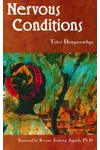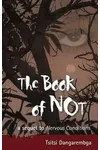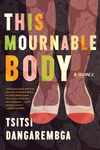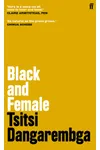Picture a Zimbabwean storyteller who wove the struggles and dreams of post-colonial life into a literary masterpiece—meet Tsitsi Dangarembga! Born in 1959, she’s a novelist, filmmaker, and activist whose debut, Nervous Conditions, broke barriers as the first English-language novel by a Black Zimbabwean woman. Her work, rich with themes of identity and resilience, continues to captivate readers worldwide.
With a voice that’s both fearless and deeply human, Dangarembga tackles the complexities of gender, race, and colonial legacies. Whether through her pen or her camera, she’s a trailblazer who’s reshaped African literature and beyond. Ready to dive into her story?
The Making of Tsitsi Dangarembga
Tsitsi Dangarembga was born in Mutoko, Southern Rhodesia (now Zimbabwe), to parents who were educators at a mission school. Her mother, Susan, was the first Black woman in the region to earn a bachelor’s degree, and her father, Amon, later became a headmaster. At age two, Tsitsi moved to England, where she learned English and forgot much of her native Shona. Returning to Rhodesia at six, she relearned Shona and attended mission and convent schools, sparking her love for storytelling. After briefly studying medicine at Cambridge, she faced racism and alienation, prompting her return to Zimbabwe in 1980, where she pursued psychology and began writing plays and stories.
Tsitsi Dangarembga’s Unforgettable Stories
Dangarembga’s debut novel, Nervous Conditions (1988), follows Tambudzai Sigauke, a young Shona girl navigating education and patriarchal constraints in 1960s Rhodesia. Hailed as a classic, it won the Commonwealth Writers’ Prize and was named by the BBC as one of the top 100 books that shaped the world. Its semi-autobiographical lens and vivid prose shine a light on colonial and gender oppression.
The trilogy continues with The Book of Not (2006), tracing Tambu’s adolescence in a post-independence Zimbabwe, and This Mournable Body (2018), a Booker Prize-shortlisted novel exploring Tambu’s disillusionment in a struggling nation. Dangarembga’s style blends raw emotion with sharp social commentary, making her work both personal and universal. She’s also a prolific filmmaker, with Everyone’s Child (1996), the first feature film by a Black Zimbabwean woman, and Kare Kare Zvako (2005), which won awards at international festivals.
Her plays, like She No Longer Weeps (1987), and essays, such as Black and Female (2022), further showcase her versatility, tackling feminist and post-colonial themes with unflinching honesty. Whether writing or directing, Dangarembga’s stories resonate with authenticity and courage.
Why Tsitsi Dangarembga Matters
Tsitsi Dangarembga’s impact on African literature and global storytelling is profound. Her work amplifies marginalized voices, particularly African women, offering insights into the intersections of race, gender, and colonialism. As an activist, she’s faced arrests for protesting corruption in Zimbabwe, yet her resolve remains unshaken. Awards like the PEN Pinter Prize and an honorary PhD from Rhodes University honor her contributions to literature and social justice. By founding the International Images Film Festival for Women and the Institute of Creative Arts for Progress in Africa, she empowers new generations of storytellers, ensuring her legacy endures.
- Birth Date: February 4, 1959
- Key Works: Nervous Conditions, This Mournable Body, Everyone’s Child
- Awards: Commonwealth Writers’ Prize, PEN Pinter Prize, Booker Prize shortlist
Snag Nervous Conditions and dive into Tsitsi Dangarembga’s powerful world of resilience and rebellion! Her stories aren’t just books—they’re a call to understand and embrace the complexities of human experience.



